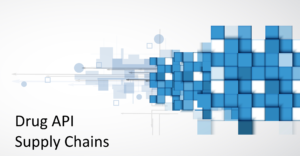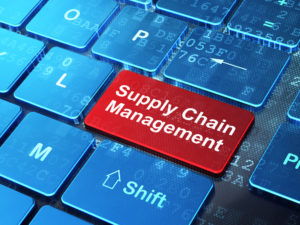 The pharma industry is facing some outsized business challenges at present – from burgeoning trade wars to downward-pricing pressures and increased regulatory scrutiny.
The pharma industry is facing some outsized business challenges at present – from burgeoning trade wars to downward-pricing pressures and increased regulatory scrutiny.
More than one conversation our team members have had recently has turned to cost controls, with an emphasis on supply chain security. The tit-for-tat tariff increases between the U.S. and China have left some C-level execs shaking their heads…and pondering the impacts given that only finished pharmaceuticals are exempt – and not chemicals or APIs.
In the U.S., drug pricing pressures are mounting, and the profusion of lower-priced generics exacerbates the situation. In the generic space itself, only one lucky winner gets the Paragraph IV benefit – even if only for 180 days. For everyone else, cost controls – whether in manufacturing, distribution, or some other part of the ingredient-to-customer chain – are the primary option for maintaining a competitive advantage.
The Attraction of Backward Integration in Pharma Supply Chains
These days, ‘stable and predictable’ and ‘pharma manufacturing’ are becoming almost diametrically-opposed concepts. Companies reliant on API manufacturers in China received a rude awakening in recent years, when multiple plants faced government action over environmental and safety violations. (And ongoing tariff uncertainty has done nothing to placate concerns.)
This has led companies who want to secure their supply chains to place much more emphasis on backward integration. There are several ways in which a pharma company could seek to backward integrate. In the classical sense of the term, they could acquire their suppliers, which – while vastly more expensive and not feasible for most companies – does constitute true backward integration.
 More typically, however, pharma firms secure supply chains by backward integrating ingredient supply. Rather than purchase a facility outright, both small pharma and large MNCs are looking for suppliers who can alleviate their concerns – without creating other, unpredictable complications such as ‘supplier-turns-direct competitor.’ (See #3 in our list of key supplier traits for securing the API supply chain, below.)
More typically, however, pharma firms secure supply chains by backward integrating ingredient supply. Rather than purchase a facility outright, both small pharma and large MNCs are looking for suppliers who can alleviate their concerns – without creating other, unpredictable complications such as ‘supplier-turns-direct competitor.’ (See #3 in our list of key supplier traits for securing the API supply chain, below.)
One key benefit of backward integration is that it helps bring down costs by increasing bargaining power when negotiating prices.
But how can companies address these various supply chain impediments? What should they be looking for in their drug ingredient supply chain?
Securing the Pharma API Supply Chain: 4 Key Supplier Traits
There are three key elements to securing an API supply chain, each of which leads to further strengthening of the supply.
- Choose a Supplier with In-House API Synthesis
Why look for in-house synthesis capabilities? Security and stability of API supply. In-house synthesis helps reduce dependence on other, often foreign, chemical manufacturers for the API manufacturer’s supply…and thus yours.In the contract pharma business, this typically means the process for the raw material will be developed by supplier and then validated in-house. This reduces risk by ensuring greater control over the process, and eliminates the need for multiple raw ingredient sources – a practice which can lead to product variance/consistency and quality issues.
Greater control means greater predictability. With manufacturing performed in-house at Neuland, for example, we exert greater process control to ensure production, compliance and quality targets are all consistent & predictable.
- Multiple sites for manufacture, to offset risk
The API manufacturer should have internal supply chain risk mitigation capabilities. In the event of a natural (or compliance) disaster, they will ideally have in place alternate sites or facilities capable of providing seamless supply, at the capacities and frequencies you require. In some cases, an API supplier may be willing to develop the process on your behalf and outsource the manufacturing to further secure the supply chain (Neuland will do this in some circumstances).At Neuland, we’re in a better position to backward integrate due to our acquisition of Unit III. This acquisition has ensured we have the commercial capacities needed to shift the manufacture of intermediates as needed.
- Choose a Supplier, Not a Competitor
In what has become something of a rarity, API suppliers remain just that: API suppliers. These manufacturers avoid competing with customers. In a growing number of instances, API manufacturers have chosen to jump onto the generics bandwagon…competing against their customers. This has led to numerous situations in which today’s supplier is tomorrow’s generic competitor – which is clearly not the best long-term risk mitigation strategy. Find an API supplier who is (and intends to remain) a pure-play API provider who focuses on maximizing the value of your drug. - Focus on Regulatory Track Records & Chemistry Expertise
This is always worth mentioning: an API manufacturer’s regulatory experience & track record as well as their complex chemistry expertise should match your future development & commercial needs. Nothing negatively impacts supply chain security more than an ill-suited supplier incapable of delivering your drug intermediates. This often boils down to proven experience with specific chemical reactions and classes of molecules, as well as a track record of compliance with the relevant regulatory bodies.
Each of these four elements – in-house synthesis, multiple site security, a focus strictly on API supply and a supplier’s compliance track record & expertise – contributes to stronger API supply chains. As a whole, they provide a single- or multi-source backward integration API supply solution for pharma companies.
Does your business want to improve supply chains and drive profitability with stable, secure access to the highest-quality APIs? Learn more about Neuland’s supply chain-securing Pharma API Capabilities >










